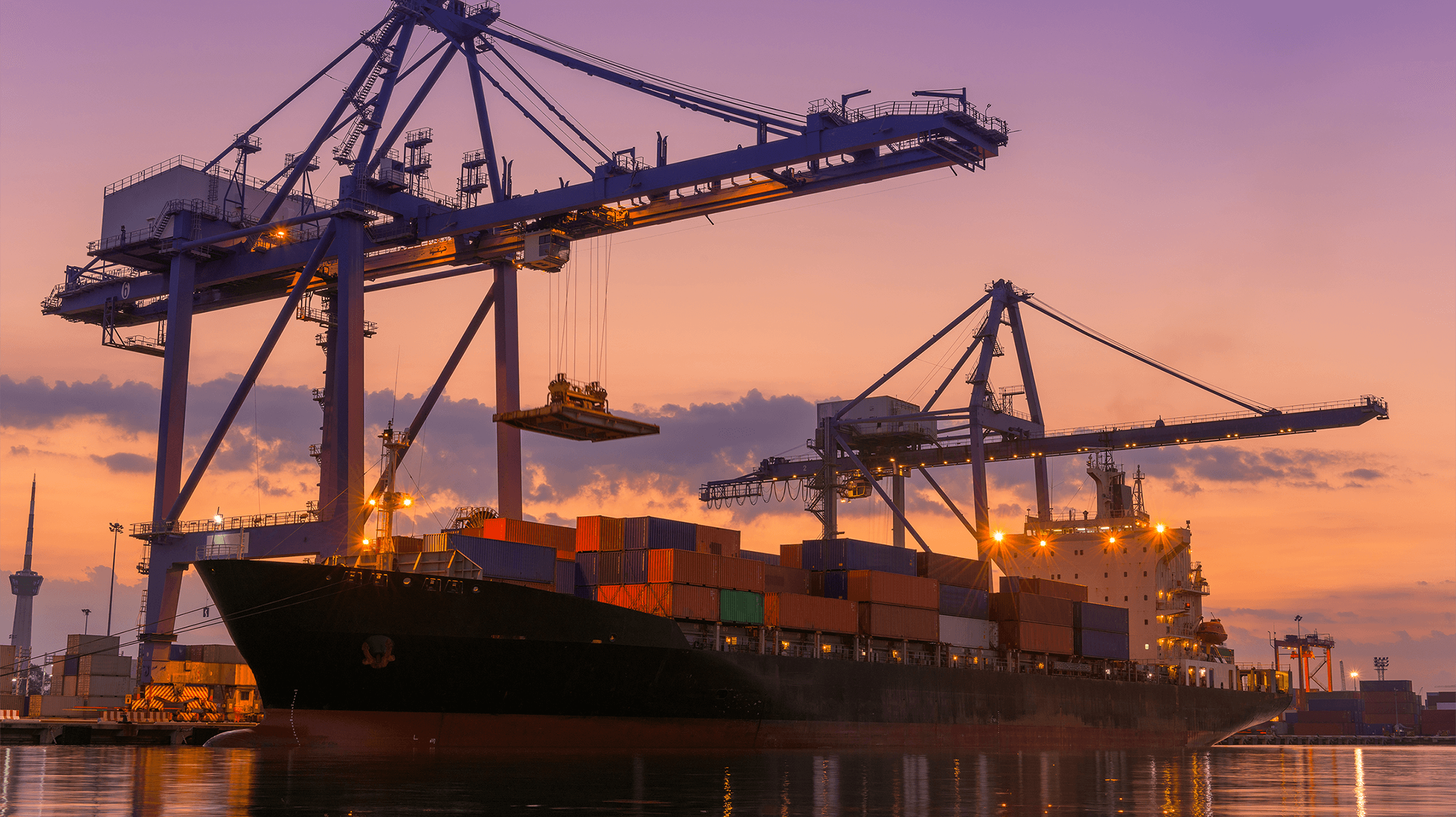
長い航海を終え、積荷・揚荷のために寄港する際には、数多くのタスクに対処しなければなりません。
乗組員と陸上スタッフが協力して安全慣行を改善し、タスク管理を最適化して船舶運航全体の効率を向上させることが重要です。本記事では船舶の安全管理と整備を効率的に行う上で生じる課題とその対策について説明しています。
According to RightShip, over half the 2,400 incidents recorded in 2022 occurred while vessels were alongside or at anchor.
The global economy is intricately connected to maritime trade, a crucial means of transporting essential commodities such as ores, food, vehicles, electronics, chemicals and energy. However, ships cannot operate in isolation and rely heavily on support from shore-based infrastructure. This support encompasses the timely delivery of provisions, fuel, spare parts and human resources while the ships are berthed or anchored at accessible ports.
Over the years, efforts to improve shipping efficiency have significantly reduced turnaround times at anchorages and ports. However, it is worth noting that while these improvements have occurred, the crew complement on board ships has either decreased or remained relatively constant. As a consequence, there are new challenges that arise in effectively and safely managing the storage and servicing of these vessels.
Numerous tasks must be addressed during a port call for cargo operations following a long voyage. These tasks encompass a variety of activities, including:
- Refueling the vessel with fuel oil and lubricating oil.
- Ensuring proper waste disposal in an environmentally responsible manner.
- Removing accumulated sludge or residues from the vessel’s tanks.
- Coordinating the presence of shore technicians to conduct repairs and servicing on machinery or equipment.
- Performing LSA (Life-Saving Appliances) and FFA (Fire Fighting) servicing.
- Collecting samples for BWTS (Ballast Water Treatment), FW (Fresh Water), lube oil, etc., to assess quality and for analysis purposes.
- Attending to Flag State and Port State control inspections conducted by regulatory authorities to ensure safety and environmental standards compliance.
- Performing major machinery overhauls as part of planned or breakdown maintenance.
- Facilitating crew changes and completing the necessary documentation.
- Carrying out classification-related surveys as mandated by the vessel’s classification society to ensure compliance with classification rules and regulations.
- Coordinating visits from company shore staff for audits and inspections, and accommodating other third-party inspections to maintain compliance and quality control.
- Receiving the supply and replenishment of provisions (food), stores, spare parts and consumables required onboard.
- Carrying out hull cleaning, propeller polishing and underwater inspections.
- Facilitating and coordinating authorised shore leave for crew members to provide them with much-needed rest and recreational time when feasible.
These tasks are crucial for the vessel’s smooth functioning, maintenance and compliance to international regulations.
The merchant vessel fleet and its associated industry operate around the clock, 24/7, 365 days a year. The nature of this industry means that vessels frequently arrive and depart at unconventional hours. One particularly demanding aspect of ship operations is the refueling process, which can become quite hectic, especially when multiple fuel supply barges deliver lubes and different fuel grades arrive simultaneously, often at odd hours.
For example, let’s consider a typical scenario where a ship reaches the anchorage in Singapore after midnight. Soon after, bunker barges are deployed to replenish the vessel’s fuel tanks. Depending on the size of the bunker parcel, this operation can take anywhere from 6 to 12 hours. Singapore is renowned as one of the most convenient and strategically located ports for such operations worldwide. However, despite its convenience for ship supply, crew members often dread Singapore due to the often demanding nature of their stay there.
Moreover, Singapore is a popular port for crew changes, with many crew members signing on or signing off in this port. While the vessel undergoes the bunkering process, other essential supplies such as provisions, stores, spares and technician attendance are also meticulously planned to coincide with the refueling operation. Additionally, surveys and inspections are scheduled to ensure compliance and safety. Consequently, crew members can experience a busy schedule throughout their stay in Singapore, constantly bracing themselves for long and demanding hours.
The crew members on ships frequently face overwhelming circumstances due to the extensive array of tasks they must complete. Whether after a long and arduous voyage, a demanding cargo operation or before embarking on a new journey, the need for adequate rest is often overlooked. In such situations, crew can develop a perceived exemption that allows them to bypass procedures and protocols, and concentrate solely on accomplishing their assigned tasks. Regrettably, this mindset often results in unsafe behaviours.
Complicating matters further, ports are often reached after navigating in a busy channel or congested waters, where a significant percentage of the crew is already stretched to their fatigue limits. This poses significant challenges as they attempt to meet the demands of the port while already operating under depleted energy levels. Moreover, the situation worsens when schedules undergo frequent changes, which disrupts carefully planned routines and undermines the entire planning process.
According to available data, many incidents occur during these port calls. RightShip’s data reports that more than half of the 2,400 incidents recorded in 2022 occurred while vessels were alongside or at anchor.
It is crucial to address this issue and prioritise the well-being and safety of the crew. As an industry, we must find practical solutions that allow for adequate rest, proper adherence to safety protocols and improved planning in coordination with port calls and schedules. This is essential to maintain a safe and efficient working environment onboard ships. In this regard, ship operators are also responsible for ensuring that crew members are not overwhelmed with excessive tasks and responsibilities during the short port stays.
The Club recommends implementing the following measures to address the challenges faced by the crew onboard ships:
- Enhanced discussions: Foster improved communication and discussions between shore staff and the vessel’s crew regarding planned tasks. This will ensure that everyone is on the same page and aware of the specific requirements and expectations.
- Flexibility for changing scenarios: Allow for sufficient margins and flexibility in planning to accommodate changing scenarios and unexpected circumstances. This will help avoid rushed decision-making and mitigate the risk of compromising safety procedures.
- Effective planning and task prioritisation: Implement proper planning techniques and prioritise tasks based on their importance and potential impact on safety. This will help allocate resources and time efficiently, ensuring that critical tasks receive attention.
- Strict protocols for JSA’s and Risk Assessments: Conduct comprehensive Job Safety Analysis (JSA) and Risk Assessments before commencing any task. This ensures that potential risks are identified and appropriate safety measures are in place. It is crucial to revisit these assessments if there are changes in timelines or schedules.
- Avoid assumptions: Eliminate assumptions such as assuming that a topic has already been discussed or that the crew member is well trained. Encourage open and clear communication to verify understanding and ensure that all necessary information is shared.
- Realistic calculations: Carry out realistic calculations for each task, including accurate time and resource planning. This helps in setting achievable goals and prevents undue pressure on the crew.
- Adherence to work-rest hour procedures: Strictly adhere to work-rest hour procedures to prevent fatigue-related incidents. Proper rest and adequate breaks are crucial for maintaining crew alertness and overall safety.
- Empowerment to issue stop-work notices: Encourage the master and crew to issue stop work notices if they identify any task being carried out in an unsafe manner. This empowers the crew to prioritise safety and take immediate action when necessary.
- Post-port call review: Conduct a comprehensive review of each port call after departing the port in a safety meeting. Seek feedback from the entire crew to identify areas for improvement and enhance existing procedures.
By implementing these recommendations, the crew and shore staff can work together to improve safety practices, optimise task management and enhance overall efficiency in ship operations.





